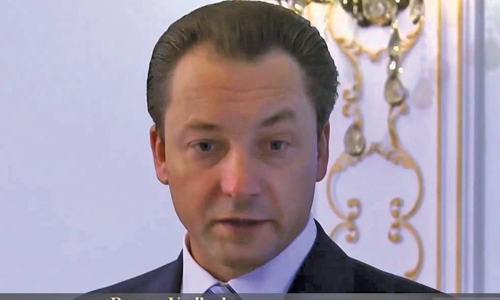How power transition in US can change Middle East policy
Donald Trump came to power as the president of the United States at a difficult time, for his predecessor Barak Obama had left him with nothing more than a big bunch of troubles with Middle East in its epicentre among others.
During Obama’s time, cardinal changes took place in the Arab world, with regimes in the Egypt, Tunisia, Libya, and Yemen getting wiped out, while Syria plunged into the abyss of a bloody civil war. Destabilisation in the Middle East - the most serious trouble for the USA is now carried forward on to the Trump’s administration.
Earlier, during his election campaign, Trump vowed to fight against religious extremism, firstly - Islamic, among others. Latest incidents prove that his vision didn’t changed after the inauguration. The entry ban for citizens from 7 states - Iran, Iraq, Syria, Yemen, Libya, Sudan and Somalia thus became one of his first orders. Thus, Mr. Trump demonstrated that the foreign policy will be swapped with more harsher methods. First of all, it concerns Iran, which managed to reinforce its position in the region. This makes Saudi Arabia and Qatar seriously anxious – who are the main US partners in the strategically important oil-bearing region. Therefore, it is highly likely that the new president will start pressing Tehran - with the purpose of weakening its position in the Middle East.
The essential loss of influence of the USA in the region was caused by the war in Yemen. Insurgents - Houthis received all kind of support from Iran. They also dealt serious damages to positions controlled by anti-Houthi coalition by Saudi Arabia, UAE and other states. And being a major ally of the USA, strikes against Saudi also dealt a blow to Washington as well. But, apparently, Trump’s administration has no specific proposals on resolving the situation in the Yemen yet.
In the Syrian conflict, USA in the final years of Obama’s term also incurred the most fatal blow to its reputation. First of all they’re related to the active participation of Russia in the Syrian conflict, with deep contradictions with relations with Turkey and uncertainty concerning the Kurdish issue. For a long time, USA fostered the idea of creating an independent Kurdish state and it now turns out that Trump sooner or later will be forced to make the devil’s choice: either refuse the idea of independent Kurdistan or be at loggerheads with Ankara or maybe even lose Turkey as the NATO-member. If USA doesn’t want this, then Trump should look for new strategies to deal with the leaders of the Syrian and Kurdish resistance.
Donald Trump is also well known for his sympathies for Israel. But the announced transfer of US Embassy to Jerusalem proved an unpleasant surprise to the Palestinian administration. Actually Washington displayed that relations with Israel are much more important to them. This had a heavy toll on the influence of USA in the Arab states, especially during the final year of
Obama’s term.
Now, only time can show, what awaits for the US in the Middle East. But for now all major players in the Middle Eastern political field are staying still, waiting for the next step of the new charismatic president.
But, for sure, the reconstituted, rebuilt and strengthened-up Russia will play its own game in pursuit of its own goals. Maybe, Vladimir Putin will accept Trump’s ‘big deal’ as a whole or may be even partially. But he will not do that if this means giving up our allies or partners.
(The author is a Russian businessman and public figure, Doctor of Economic sciences, the founder of the international company “Life is Good Ltd”, International Business Academy, “IBA” and the chairman of the board of the housing cooperative “Best Way”).
Related Posts

